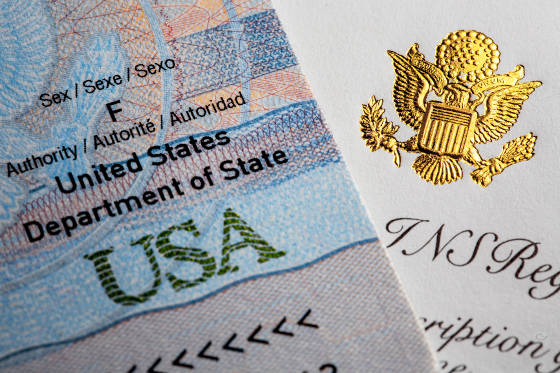
U.S. Passport and Certificate of Naturalization by Gashgeron/DepositPhotos
There are three foreign birth documents that U.S. citizens may use as
proof of citizenship: FS-240 Consular Report of Birth Abroad of a
Citizen of the United States of America (CRBA),
DS-1350 Certification of Report of Birth, and
FS-545 Certification of Birth.
If you are a U.S. citizen born
abroad and are in possession of any of these documents, you have
evidence of citizenship. Because the laws are always changing, the
document that was valid at your time of birth is still valid for you,
even if it has subsequently been replaced by later foreign birth
documents.
What Is The Difference Among The 3 Acceptable Foreign Birth Documents?
Basically, the primary difference among these three foreign birth documents that are acceptable as evidence of U.S. citizenship is their dates of issue; if you were born before November 1, 1990, you were issued an FS-545 if your parents registered your birth; it is still valid today. If you were born between November 1, 1990 and December 31, 2010 and your parents registered your birth, you were issued a DS-1350, which is also still valid today. A child born January 1, 2011 or later received an FS-240, the newest and most secure of the foreign birth documents issued by the U.S. Department of State.How Do Adults Obtain An Acceptable Foreign Birth Document?
You can only obtain one of these three acceptable foreign birth documents outside the United States, and they can only be prepared through a U.S. embassy or consulate abroad. The consular officer will review and approve or deny your application; approved applications are forwarded on to the Department of State in the United States, who then issues a Form FS-240 (CRBA) in your name. (The other two foreign birth documents are no longer available.) According to U.S. law, the CRBA serves as your proof of U.S. citizenship.How Do Children Under 18 Obtain An Acceptable Foreign Birth Document?
If you were born abroad, and for whatever reason, your parents didn't register your birth with the U.S. embassy or consulate in your birth country, then the place to start now to establish your U.S. citizenship is to first apply for a Consular Report of Birth Abroad of a Citizen of the United States of America (CRBA) from the American embassy or consulate while you are in that country. This can only be done if you are still under the age of 18. According to the laws of the United States, your CRBA is proof of U.S. citizenship in the same way that a birth certificate in the United States is proof of U.S. citizenship. If both of your parents were U.S. citizens when you were born abroad, and they were legally married, then it's pretty straightforward. You qualified to acquire U.S. citizenship at birth as long as one of your parents lived in the U.S. for any length of time prior to your birth. If only one of your parents is a U.S. citizen, but the other parent is not, and they were married at the time of your birth, you also acquired U.S. citizenship at birth, as long as your U.S. citizen parent showed evidence of living in the U.S. for the required amount of time before you were born. Lastly, if your parents were unmarried U.S. citizen(s), there are additional conditions to be met for you to obtain U.S. citizenship. If your parent(s) meet the citizenship and residency requirements and you are qualified to obtain U.S. citizenship, a parent can submit Form DS-2029 on your behalf, or you can if you're 16-17 of age, to the nearest embassy or consulate to your place of birth and apply. Your application will require your foreign birth certificate showing both parents' names, evidence of the citizenship of your U.S. parent(s) like a passport, plus your parents' marriage certificate, and an affidavit or other evidence proving required U.S. residency from your U.S. parent. When you are granted U.S. citizenship, you'll receive an FS-240 certificate, or Consular Report of Birth Abroad that can be used to confirm your citizenship just like a U.S. birth certificate. The CRBA is the easiest and least expensive way to go. If you didn't obtain U.S. citizenship at birth, because your parent didn't meet the residency requirement in the U.S. prior to your birth, your parent can naturalize you by going back to the U.S. and fulfilling the residency requirement. According to U.S. law, your parent can fulfill the requirement either before or after you are born. After the required residency has been completed, your parent can submit Form N-600K, the Application for Citizenship and Issuance of Certificate Under Section 322. The filing fee is $600 and the whole process has to be completed before you turn 18. Either document establishes citizenship and allows for passport application.Can You Use Any of These Foreign Birth Documents to Get a Passport?
Any of the three foreign birth documents can be submitted as proof of citizenship on a passport application; the newest Consular Report of Birth Abroad (CRBA), the Certification of Report of Birth, or the Certification of Birth, because they were the legal document in use at your time of your birth. The documents fulfill the citizenship equirements, but you'll need to complete the rest of the passport application process and submit the appropriate fees, $80, plus a $25 execution fee for minors 15 and younger, and $110, plus the $25 execution fee for adults 16 and older. U.S. embassies and consulates accept payment in local currencies and advise you on the best method of payment. Once you see the difficulty of obtaining acceptable proof of citizenship, you will understand the importance of immediately getting your passport. A U.S. passport is also evidence of U.S. citizenship and will present a much easier path when situations arise that require proof of citizenship. If you were born in a U.S. territory, you will simply use your birth certificate as evidence of citizenship and do not need a foreign birth document.In a Hurry? Get Reliable Expedited Passport Courier Service:Expedite My U.S.Passport Now!
Top 5 Questions About Expedited Passport Couriers
1. How can you get a passport when you're in a hurry?
2. What exactly does a passport expediter do?
3. Are passport expediting services legitimate?
4. How can I identify a reliable passport expeditor?
5. Is expedited passport service worth it?
2. What exactly does a passport expediter do?
3. Are passport expediting services legitimate?
4. How can I identify a reliable passport expeditor?
5. Is expedited passport service worth it?
Get answers to these questions and more in our Ultimate U.S. Traveler's Guide to Passport Expediters.
You can also visit our library of articles about passport expediting.


